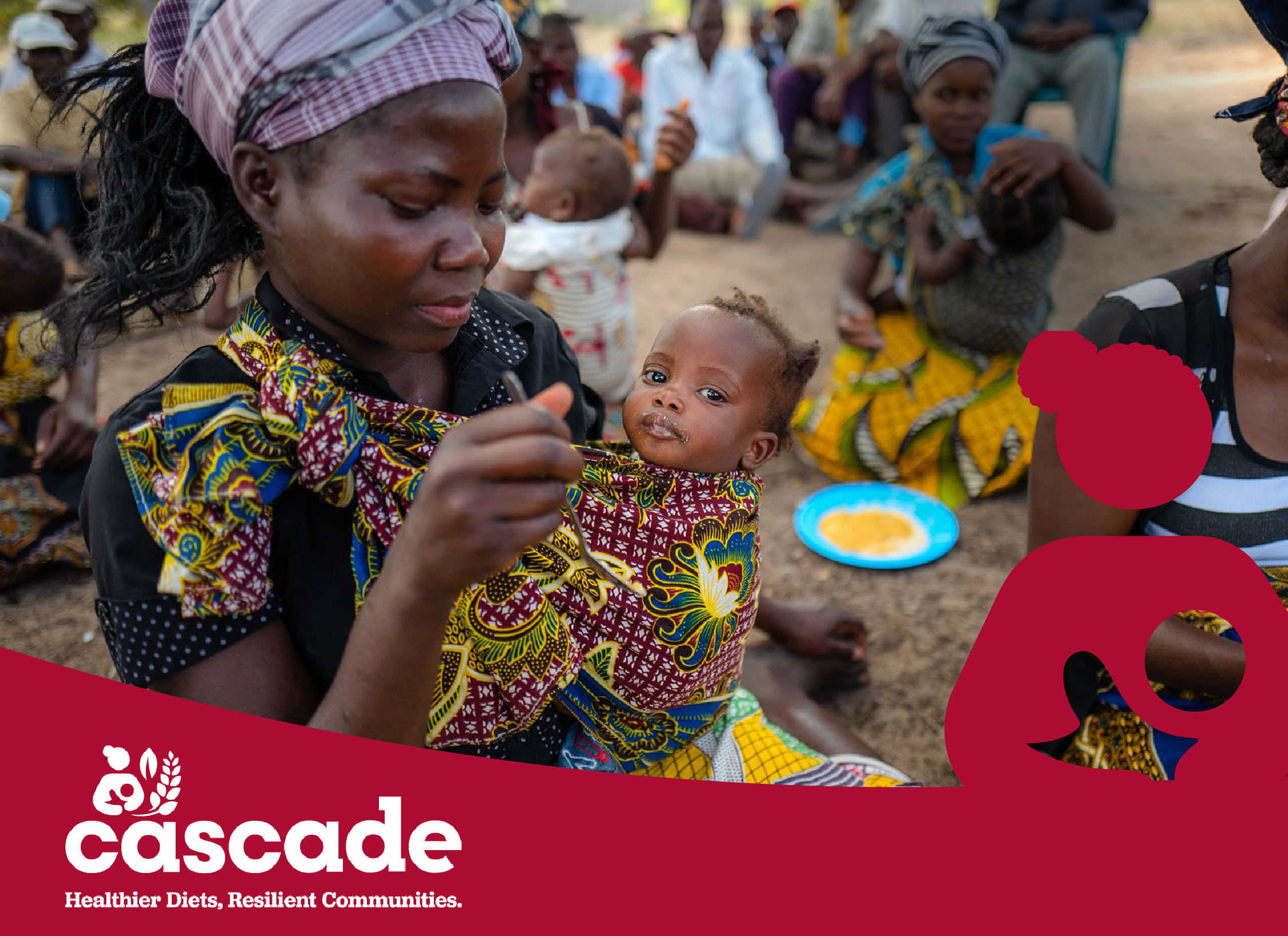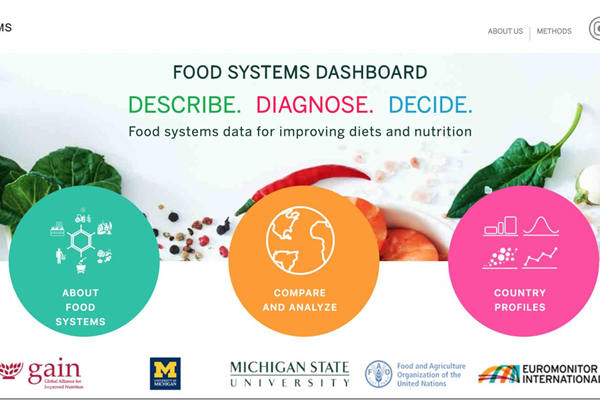GAIN Kenya
CAtalyzing Strengthened policy aCtion for heAlthy Diets and ResiliencE (CASCADE)
CASCADE is a Dutch-funded project whose goal is to improve food security and contribute to the reduction of malnutrition of at least 5 million women of reproductive age and children under five in Benin, Nigeria, Uganda, Kenya, Ethiopia, and Mozambique. In Kenya, the programme targets to directly benefit 900,000 women of reproductive health and children under five and indirectly reach 4 million beneficiaries. CASCADE is being implemented by a consortium of GAIN and CARE International Kenya in Nakuru, Nyandarua, and Nairobi Counties.
The project runs from 2022-2026 and has five domains
(i) Influence and strengthen government bodies to improve the implementation of national nutrition-related policies;
(ii) Engage private service providers to improve implementation of nutrition-related policies by offering accessible affordable products and services;
(iii) Empower community members and government service providers to challenge existing counterproductive practices and improve essential nutrition-related services;
(iv) Strengthen women’s capacities to benefit from (improved) nutrition-related policies, enabling them to produce, acquire prepare and consume healthy diets; and
(v) Promote synergies where relevant actors mutually reinforce each other. GAIN is implementing domains one and two while CARE International is implementing domains three and four with domain five shared by the partners.
Vegetables for All
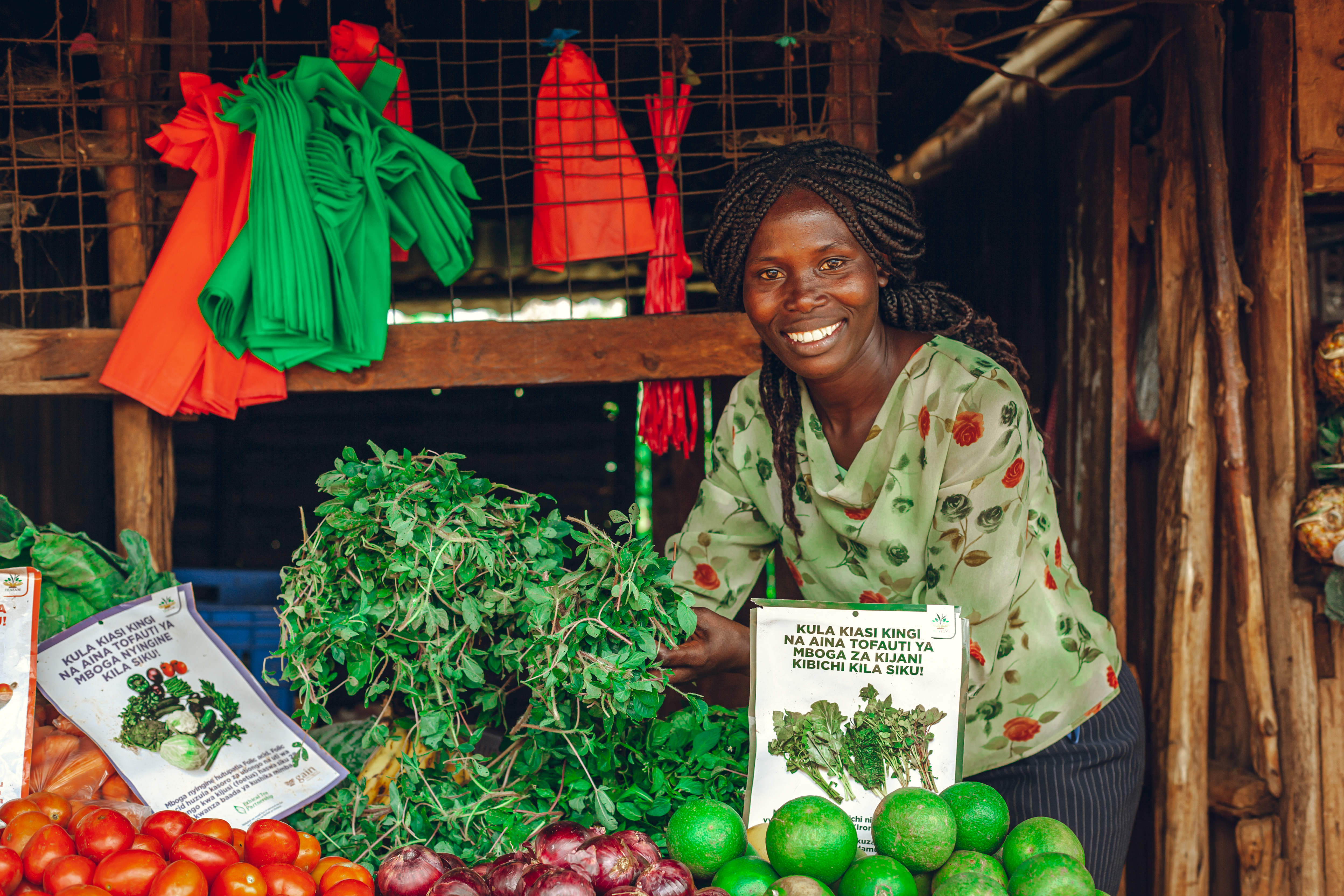
Vegetables for All is a Dutch Government-funded five-year project that aims to improve dietary diversity for 1.1 million urban and peri-urban Bottom of the Pyramid (BoP) consumers by increasing consumption of vegetables in alignment with global guidelines. The project is being implemented in five counties: Nairobi, Kiambu, Machakos, Nakuru and Mombasa. The project targets families with children aged 3-12 in the lower income group, earning between USD 118 - 355 per month.
Based on GAIN's consumption studies, the project aims to improve vegetable consumption by focusing on the following elements: vegetable safety, vegetable freshness at the point of purchase, proximity of vegetable sellers, variety and taste. These will be delivered through Fit Food Zones.
Fit Food Zones (FFZs) are the last mile/point of purchase integrated solution offered by the FitFood Brand to deliver the consumers’ expectations on freshness, safety, proximity, variety and taste. The FFZ includes other small retailers that sell vegetables to the target audience including local retail supermarkets and traditional markets. Other community services, such as schools and churches, are considered relevant stakeholders in the FFZs due to their ability to communicate brand messages and influence consumption.
The CASCADE project will:
- Create partnerships with private actors and organizations who employ different models at various levels and support sourcing of vegetables from Good Agricultural Practices (GAP) compliant suppliers to increase the all-year availability of safe vegetables in target markets.
- Increase access to safe vegetables by supporting Last Mile Vendors (LMVs) i.e mama mbogas, aggregators, local supermarkets, markets and linking them to approved suppliers. The support will include branding and training.
- Strengthen existing food safety and traceability mechanisms for vegetables.
- Improve consumers' willingness to purchase vegetables and make choices based on benefit criteria through conducting promotional activities.
Create an enabling environment to support the access and demand project activities as well as address rules and incentives, and information flows across vegetable system actors (private sector, government officials, consumers).
Nutrition in ASALs Within Integrated Resilient Institutions (Nawiri)
Nutrition in ASALs Within Integrated Resilient Institutions (Nawiri), is a USAID Bureau for Humanitarian Assistance (BHA) five-year research and development program that is being implemented in the arid and semi-arid counties of Isiolo and Marsabit in Kenya. The project’s goal is to sustainably reduce persistent levels of acute malnutrition among vulnerable populations in the two counties, strengthen systems and institutions to sustain change and contribute to global learning on malnutrition. NAWIRI is led by Catholic Relief Services (CRS) in a consortium with the Global Alliance for Improved Nutrition (GAIN), Concern Worldwide, Village Enterprise, Tufts University, IBTCI, The Man off Group, and Caritas Isiolo, and Marsabit. GAIN is leading interventions under the Marketplace for Nutritious Food (MNF) approach to help ensure improved accessibility, affordability, and availability of nutritious food products all year round in targeted communities.
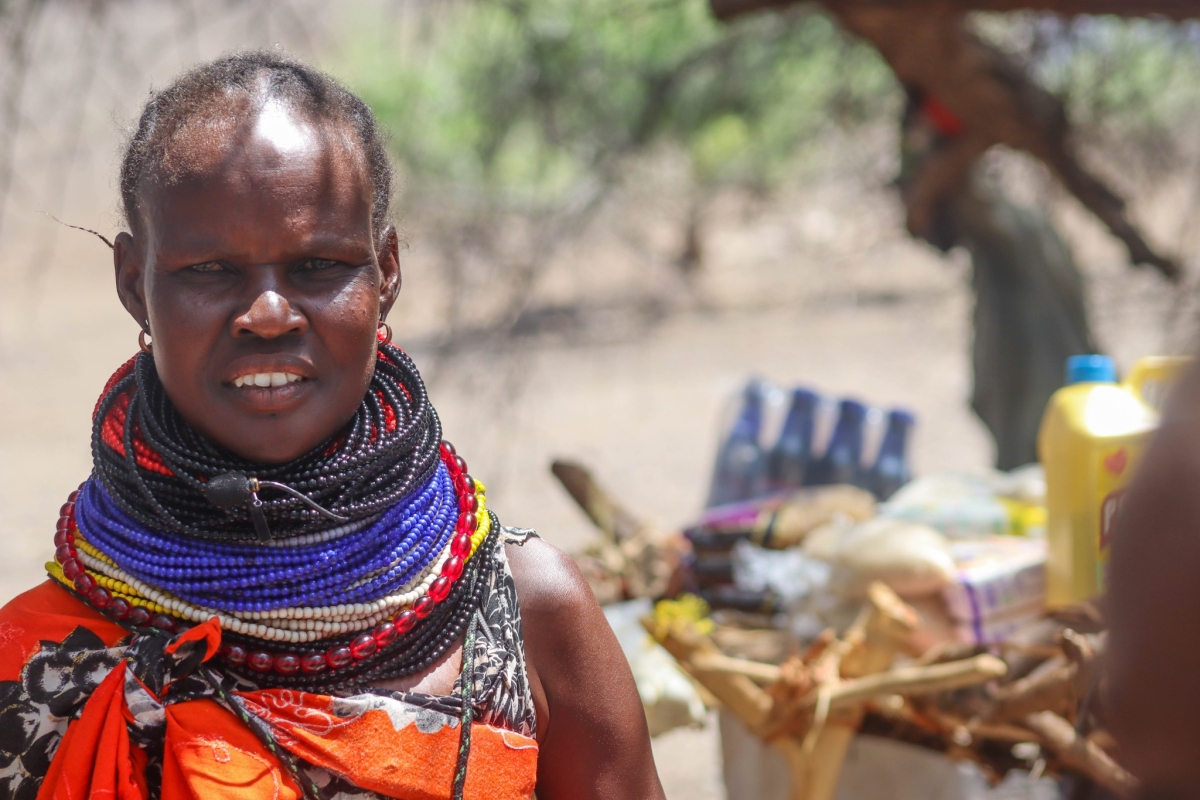
GAIN Kenya in partnership with the County Governments of Isiolo and Marsabit is supporting two SMEs to provide safe and nutritious food to malnutrition hotspots. The scope of support includes technical support (business assessment, market analysis, business plan development, product development, supply, sales, marketing strategy, and consumer demand creation) and provision of dairy and meat processing equipment. The processing equipment will enhance production and ensure the improved shelf life of the nutritious products. Besides, GAIN has mapped and trained last-mile vendors on the supply of safe and nutritious foods to the malnutrition hotspots.
To improve desirability and availability of diverse nutritious foods in the community, GAIN is conducting cooking demonstrations to empower communities in Isiolo and Marsabit Counties with practical knowledge and skills on preparation methods of other nutritious food items like fish, meat, and vegetables.
Scaling Up Nutrition Business Network (SBN)
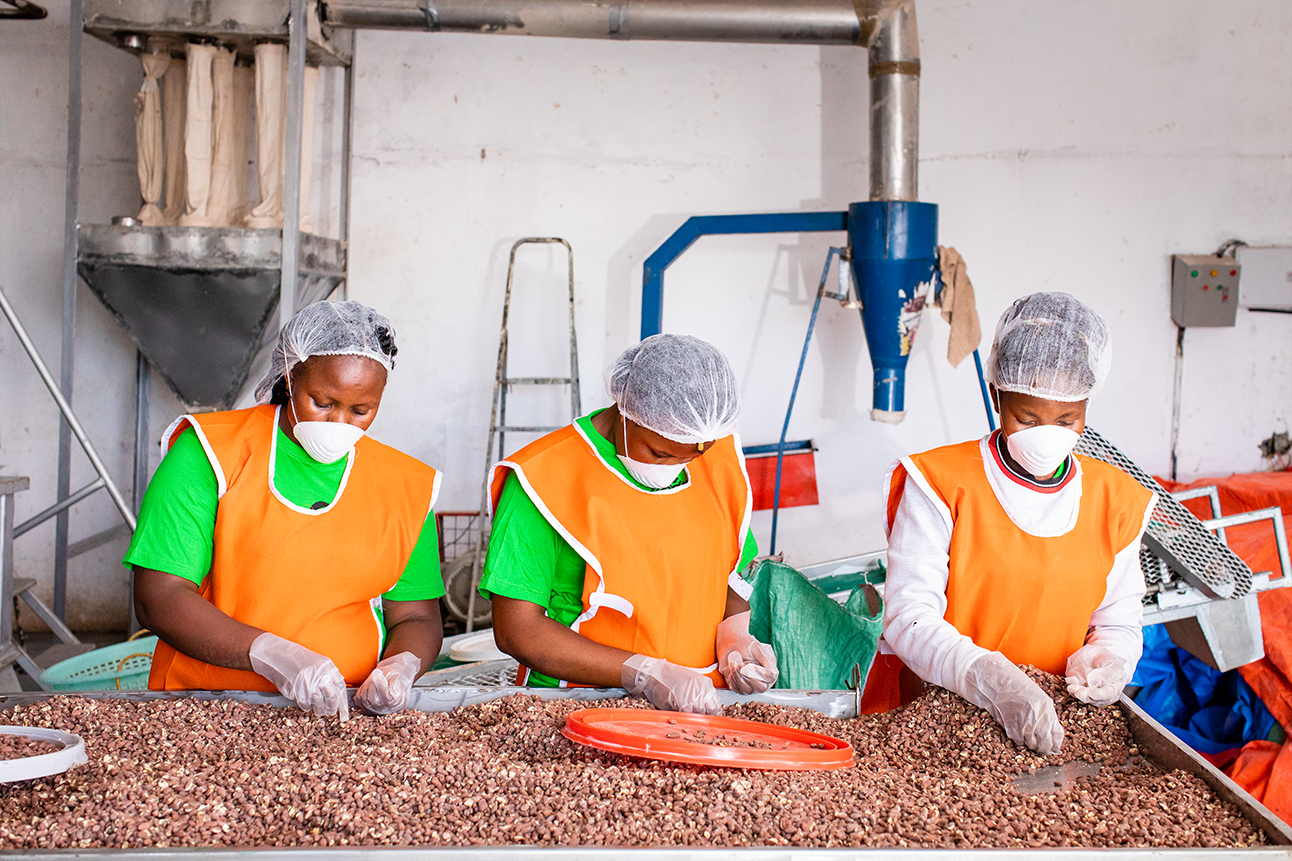
Scaling Up Nutrition Business Network (SBN) is the world’s leading private sector focused nutrition initiative. SBN is one of the six Scaling Up Nutrition (SUN) networks (Government Network, UN Network, Academia and Research Network, Civil Society, and Donor Network). SBN was established in 2014 with the Global Alliance for Improved Nutrition (GAIN) as the convener and World Food Programme (WFP) as the co-convener. SBN is a neutral platform that fosters partnerships and collaboration. SBN aims to engage and mobilize businesses at a global and national level to act and invest responsibly and innovate in responsible and sustainable actions in emerging markets to improve the consumption of safe food and to make good nutrition more aspirational, accessible, affordable and available for all people.
The network’s vision is to Contribute to reduction of malnutrition in Kenya while the Mission is to Enable businesses to supply consistent, safe and nutritious foods to consumers in Kenya.
SBN has a five-year strategy (2019- 2023) that guides the networks’ activities through the five strategic pillars namely: Financing for Micro, Small and Medium Enterprises (MSME's), Technical Assistance, Workforce Nutrition, Policies and Advocacy and Market and Demand. The network draws membership from businesses across the food value chain. It currently has a membership of over 150 businesses across the country.
SBN has a robust independent secretariat that is responsible for providing overall collective strategic guidance and oversight, including identification of opportunities for gender mainstreaming. The secretariat draws membership from the Government (Ministry of Health, Ministry of Agriculture, Livestock and Fisheries, Ministry of Industrialization, Trade and Enterprise Development, and Kenya Bureau of Standards), business member organizations (Kenya Private Sector Alliance, Kenya National Chambers of Commerce and Industry and Kenya Association of Manufactures), the United Nation Organizations (Food and Agriculture Organization (FAO), United Nations Children Fund (UNICEF), Sustainable Development Goals Partnership Platform and national network leadership (Chairperson, Vice chairperson and Secretary).
The major component of the SUN Business Network has been funded by Irish Aid.
Understanding how aspects of food systems are associated with nutritional, environmental, and social outcomes will help inform policy at the country and county levels. Evidence-based policymaking requires sound advice, but the data (and tools) are fragmented in many of our counties. Policymakers are often in the dark about how to manage their food systems and need to know where and how to start. GAIN is working on a food systems dashboard whose goal is to put in place a resource centre for decision-makers to find high-quality national, subnational, and city-level data and analytics on their country’s food systems. GAIN Kenya is working with Kiambu and Machakos Counties to develop a county-level dashboard to inform decisions on food and nutrition.
The dashboard is a critical tool that contextualises food systems and their linkages to diets, nutrition, and other development outcomes. This project is funded by Dutch Government and is part of the larger Vegetables for All Programme.
Resilient Markets
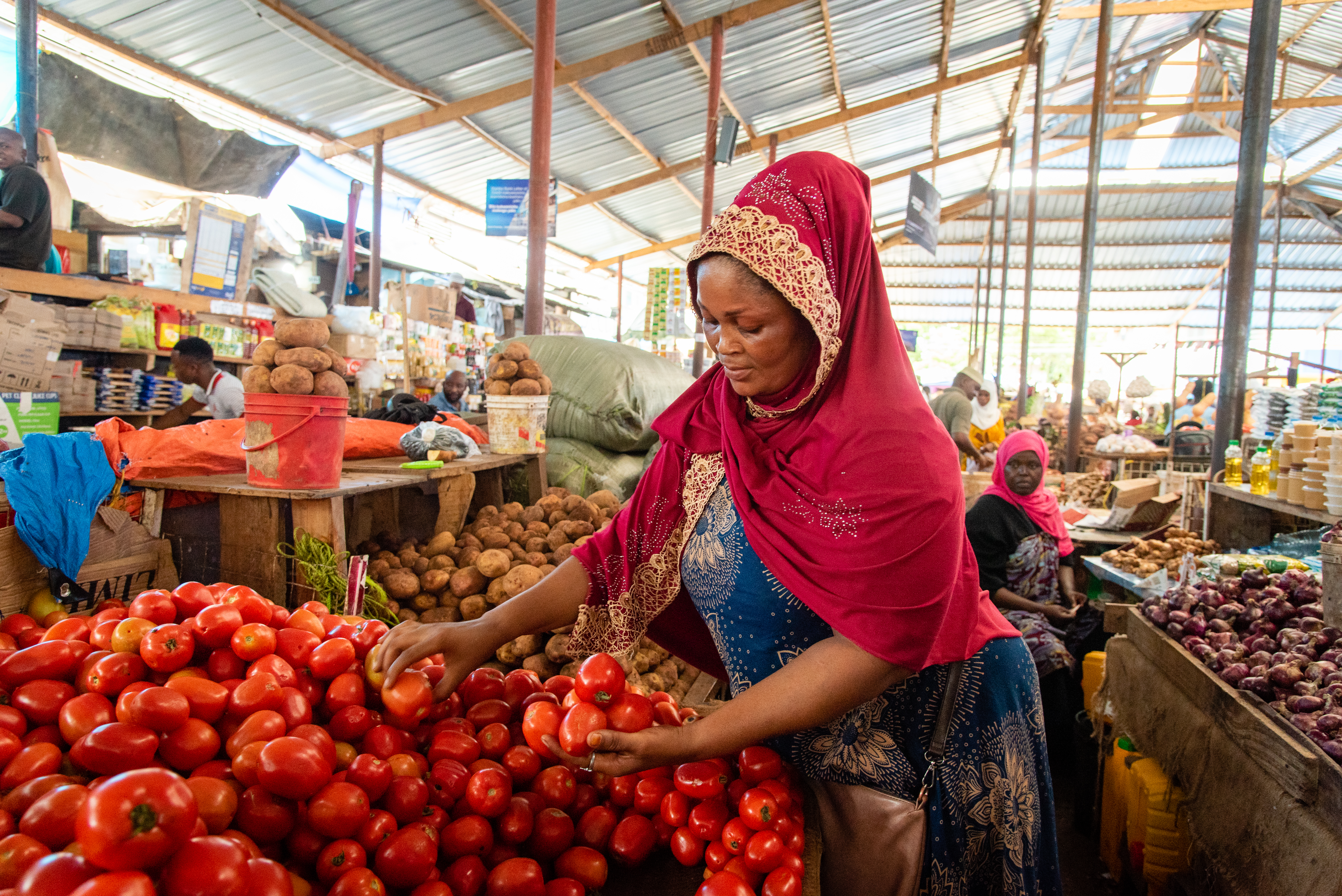
Resilient Markets project builds on the relationships and learnings from the previous COVID-19 emergency programme: Keeping Food Markets Working (KFMW). Traditional food markets sell significant volumes of perishable foods and remain the dominant source of both staples and nutrient-dense food for a large share of Kenya’s population. They are essential to the food and nutrition security (FNS) of urban and rural inhabitants. Presently, many of these markets are set up in a way that makes them structurally and operationally vulnerable to disruptions, such as weather and health hazards, fires, and power failures. Inefficient market structures and operations as well as governance often lead to food waste, food safety issues, and nutritious foods being inaccessible to the poorest urban residents.
GAIN with funding from the Dutch Government is currently implementing Resilient Markets Project (2022-2026) targeting five counties: Machakos, Kiambu, Nakuru, Nairobi, and Mombasa. The project goal is to facilitate resilient and sustainable food security and nutrition-enabling environment within urban informal fresh food markets.
Food and Land Use (FOLU) Coalition
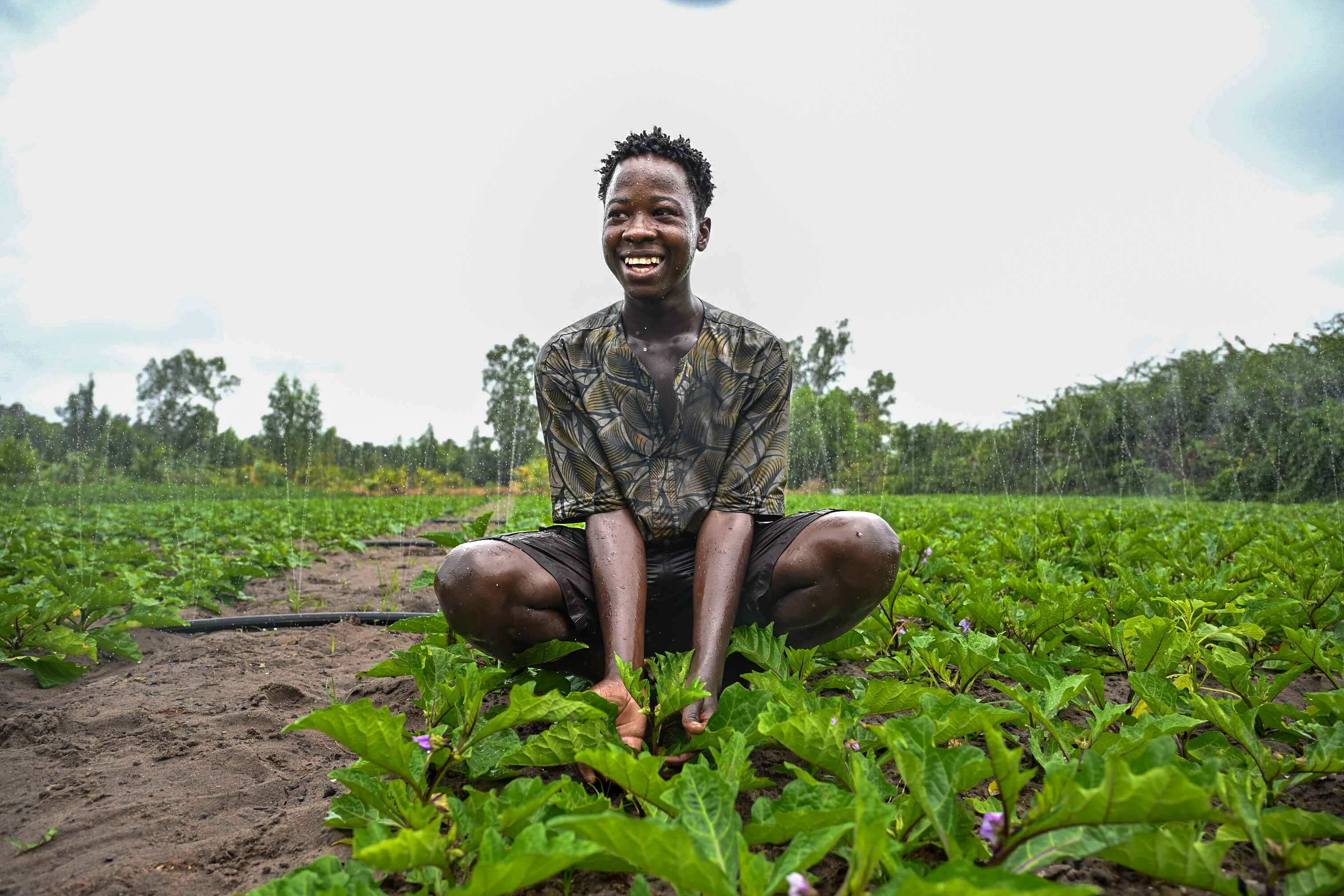
FOLU is a global community of change-makers working to accelerate the transformation of food and land use systems. As a coalition, FOLU embraces a diversity of opinions and approaches, supports disruptive thinking, and forges consensus through an evidence-based approach to achieving Sustainable Development Goals (SDGs) and the Paris Agreement on Climate Action.
FOLU in Kenya is a coalition of GAIN, Alliance for a Green Revolution in Africa (AGRA), and World Resources Institute (WRI). The program is designed around 4 distinct but mutually reinforcing components: (I) Regenerative and productive agriculture systems which is led by AGRA; (ii) Sustainable and nutritious diets which is led by GAIN; (iii) Restoration and management of landscapes; and (iv) Reduction of food waste and loss both led by WRI. All the components form key pieces to building resilient and responsive food systems to climate and the well-being of communities.
Workforce Nutrition
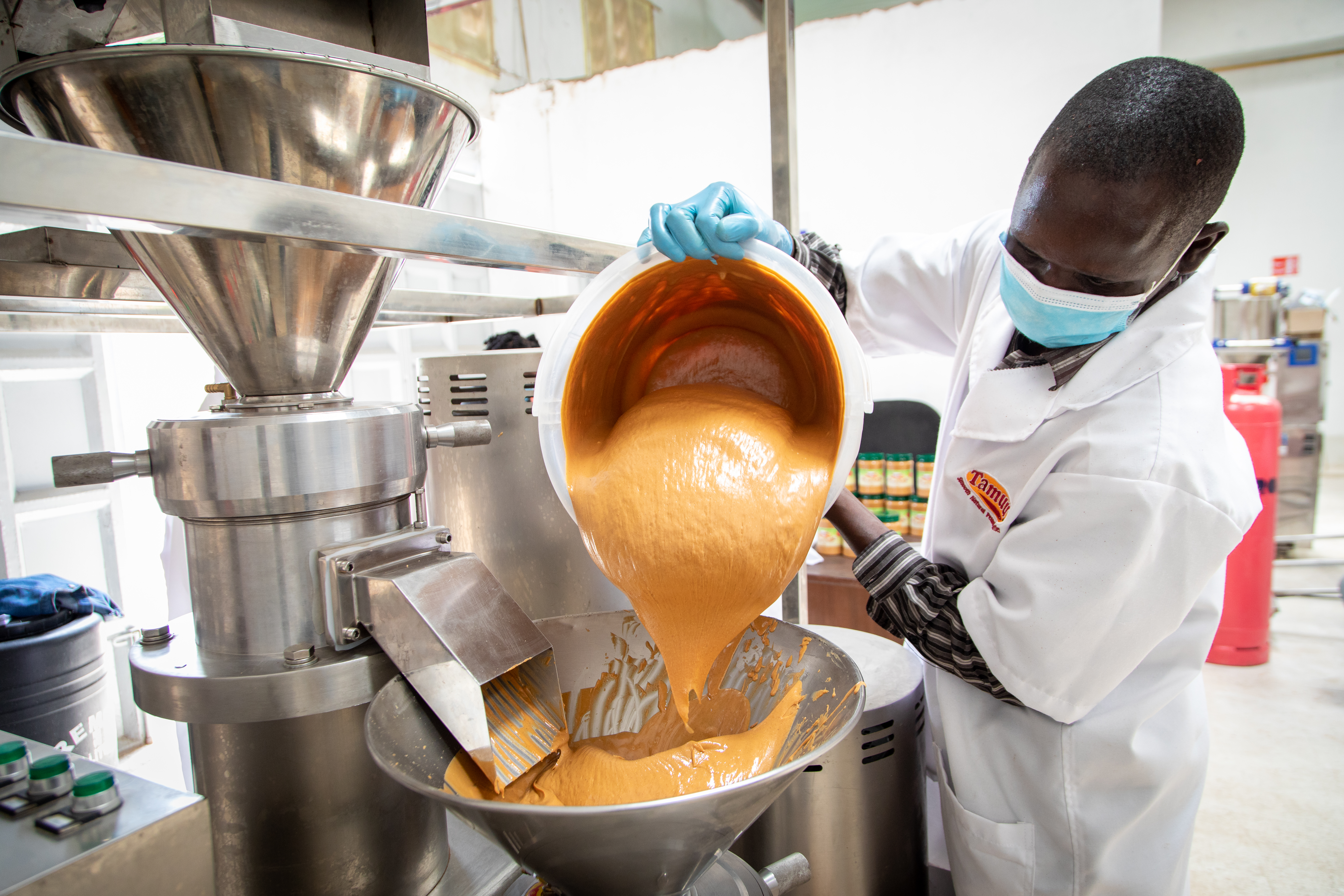
GAIN’s Workforce Nutrition programme aims to improve the nutrition of workers and farmers in low- and middle-income countries and communities. It focuses on improving access to and demand for healthier diets using existing business structures as entry points (workplaces or supply chains).
Between 2016 and 2018, GAIN partnered with Unilever & The Sustainable Trade Initiative (IDH), and successfully implemented the Seeds of Prosperity behaviour change communication project for tea farming families, including workers and farmers, within Unilever Tea Kenya in Kericho County. The project focused on dietary diversity and handwashing. The project reached more than 14,000 estate workers and smallholder farmers with nutrition (dietary diversity) and handwashing interventions.
During the second phase of the project (2018- 2020), GAIN with funding from the Dutch Government partnered with the Kenya Tea Development Agency (KTDA) to implement the “TEAFAM” project among smallholder tea farmers, workers and their households in Kericho County. The goal of the project was to improve diets among small holder tea farmers and their families. The TEAFAM project improved and ensured consumption of healthy diets among more than 30,000 smallholder tea farmers and their families directly, with an estimated indirect reach of approximately over 150,000 tea farming community members.
With additional partnership with The Ethical Tea Partnership (2020-2023) and private sector funding from global tea buyers, the third phase reached an additional 30,000 smallholder farmers, workers and their families directly, with an estimated indirect reach of over 100,000 tea farming community members. This was done through nutrition education and in-depth practical interventions such as cooking demonstrations/competitions, kitchen garden trainings and demonstrations, among other nutrition interventions
Commercialisation of Biofortified Foods (CBC)
This project is a significant evolution of GAIN’s 5 Year strategy (2018-2022) complementing and strengthening existing work on fortification and healthy diets and is introduced as a new workstream within GAIN’s existing current work to improve access to safe, healthy, and affordable nutrition and promoting its consumption among the most vulnerable populations.
In 2019, GAIN and Harvest Plus with funding from BMZ and the Dutch Government launched the Commercialisation of Biofortified Crops (CBC) Project. The main objective of the programme is to scale up the commercialisation of biofortified nutrient-dense foods to tackle hidden hunger. In Kenya, the programme targets to enable at least 2.9 million consumers to access biofortified beans whilst transiting over 168,000 bean farmers from subsistence farming to commercial bean production. CBC works with commercial value chain actors including seed producers, farmers, aggregators, and food processors, to expand the commercial reach of biofortified seed grains and food products.
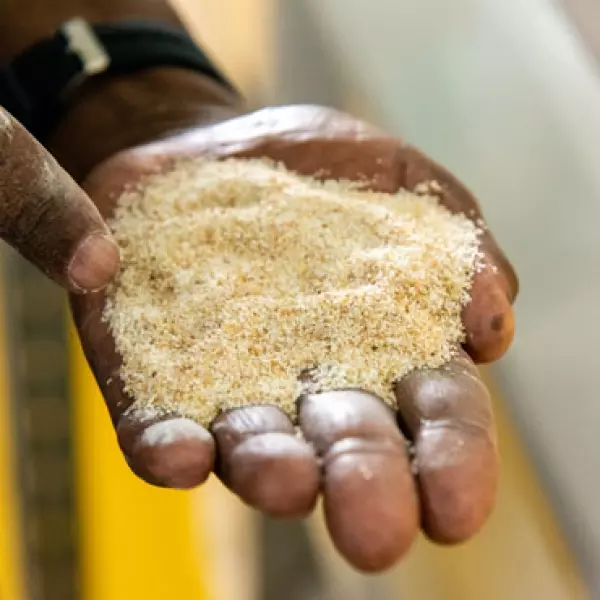
Marketplace for Nutritious Foods (MNF)
The Marketplace for Nutritious Foods Project (MNF) seeks to support and catalyse business innovations that increase the affordability, accessibility, desirability, and improve the quality of nutritious foods reaching local markets. The project offered business technical assistance and/or financial grants to Small & Medium Enterprises to improve their production capacities for local market. MNF was funded in two phases; the first phase (MNF1) was funded by USAID between 2015 and 2017 while MNF2 (2018- 2021) was funded by the Dutch Government (Dutch 2.0).
Through the Marketplace for Nutritious Foods, GAIN supported more than 20 companies with grant and technical assistance such as business plan development, product development, quality assurance & control, and marketing to increase the availability and affordability of various nutritious foods. This resulted in the sales of more than 69,000 servings of nutritious foods in Kenya. In addition, more than 30 other small and medium-scale companies were capacity built-in market entry, entrepreneurship, financial management, and strategic business management through the Community of Practice multi-day training and networking events.
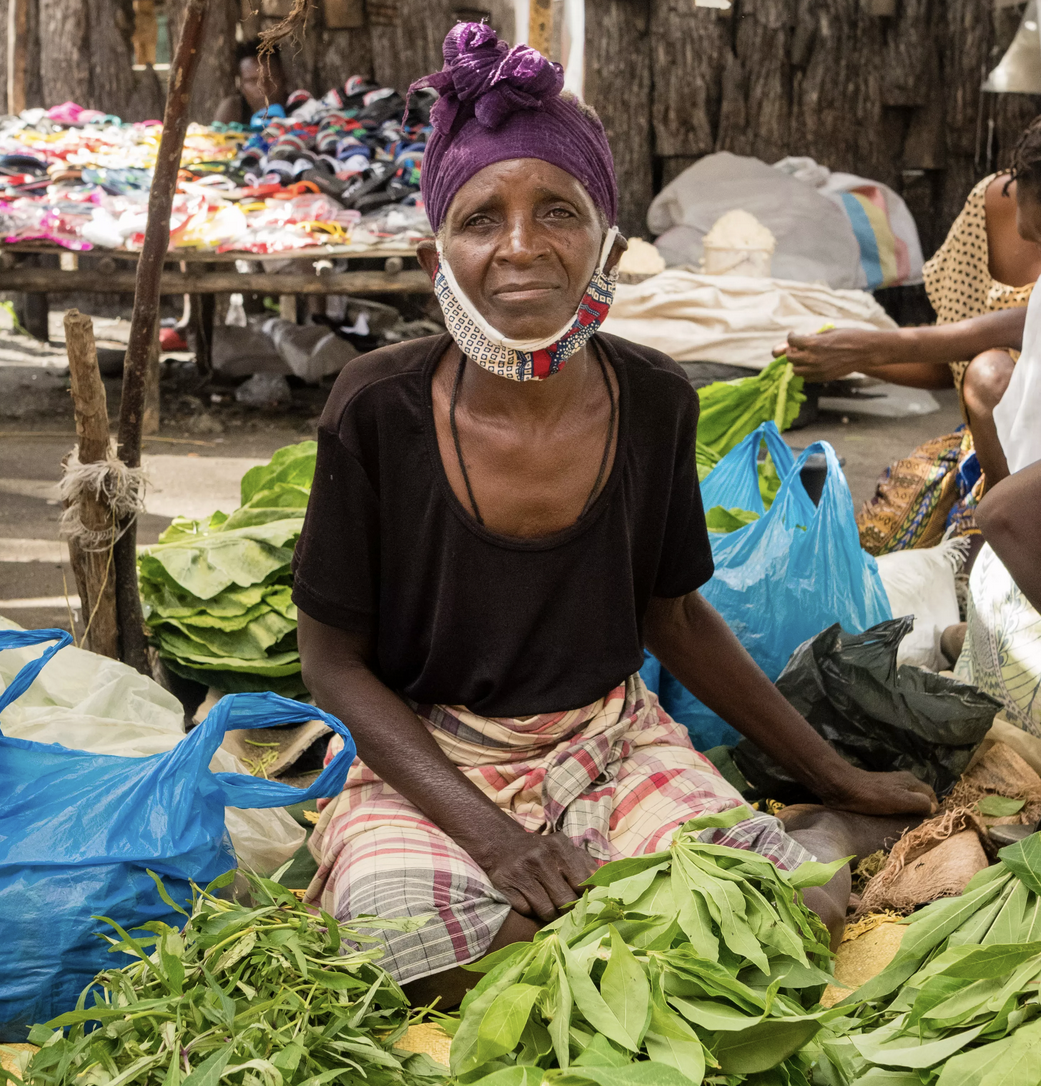
Keeping Food Markets Working (KFMW)
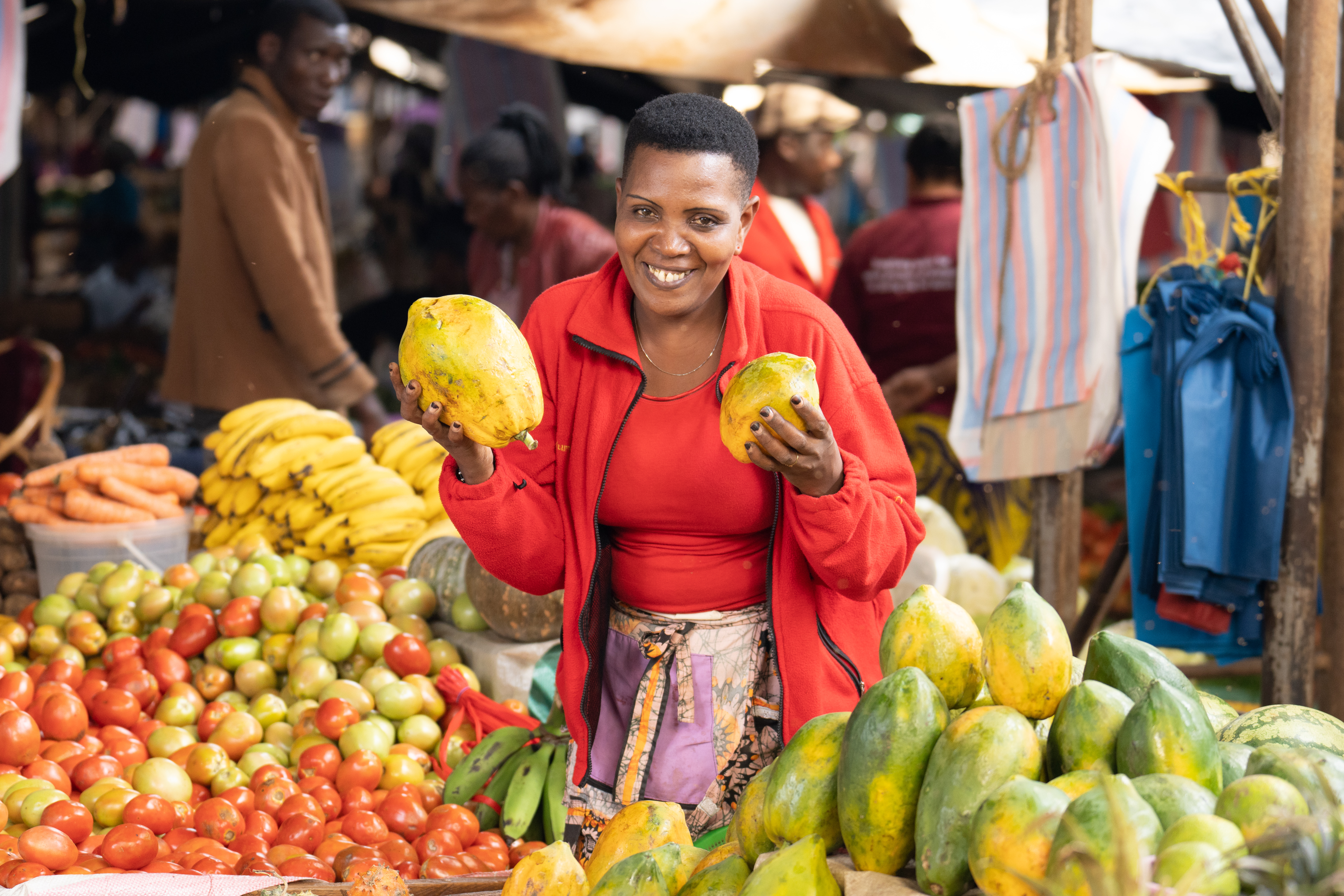
KFMW was an emergency response initiative to meet the challenges facing the food system with the overarching goal of mitigating the risk of economic collapse of food systems in order to sustain the availability and affordability of nutritious and safe foods, and contribute to lowering the burden of ill-health, particularly for the most vulnerable. The project worked with national and local government to assess, analyse and recommend viable solutions to improve market operations within the country. KFMW also aimed at keeping fresh food markets open and well governed and related SME businesses operational during and after the COVID-19 pandemic.
The project provided emergency grants worth over USD 453,000 to more than 39 SMEs. The support covered operating expenses such as rent, salaries, marketing, transport, and raw materials. Additional support also went into the safety of personnel by procuring Personal Protective Equipment (PPE). The support helped businesses improve their cashflow, re-hire staff, and resume production. Besides, GAIN provided technical assistance to 15 businesses five being female-owned/co-owned. They received tailored technical assistance on different topics including market research, digital marketing, quality assurance and quality control, business planning, and product development.
We also developed and disseminated SME COVID-19 guidance videos in English, and Swahili. The videos guided SMEs on how to reduce the chances of COVID transmission or infection by making recommended operational changes in processing, distribution, and retail. Moreover, GAIN developed an SME training manual on digital marketing to help businesses navigate and adapt to new COVID-19 realities including pivoting to e-commerce (online sales). An online learning portal was developed, and businesses took the courses online. Seventeen businesses signed up and went through the virtual digital marketing training in Kenya. The project was funded by the Dutch Government, BMZ, WHO, and Global Affairs Canada.
Evidence and Action Towards Safe, Nutritious Food (EatSafe)
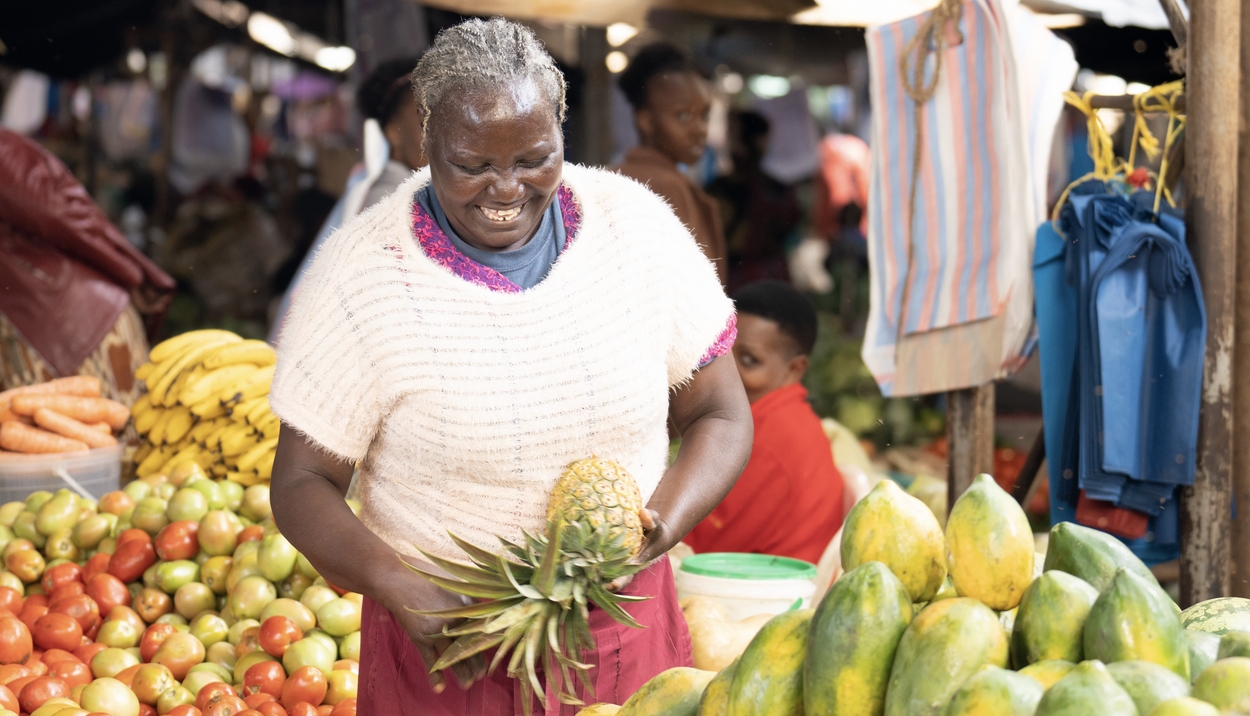
EatSafe was a five-year project aimed to enable lasting improvements in the safety of nutritious foods in informal markets by focusing on consumers and vendors. It was led by GAIN in partnership with the International Livestock Research Institute (ILRI), a research center with expertise in food safety, and Pierce Mill Entertainment and Education, a firm specializing in social impact media for positive behavior change. EatSafe implemented and tested a series of interventions to substantially improve food safety, working with vendors, and creating consumer demand for safe, nutritious foods.
EatSafe had three objectives:
(i) Consolidate and generate knowledge and evidence about consumer values and perceptions related to food safety; gender roles and norms that may influence food-related behavior among consumers, vendors and other actors; and quantified food safety risks in informal markets;
(ii) Develop and test interventions and tools to support their implementation for consumers and informal market vendors to communicate about and/or reduce food safety risks; and
(iii) Generate evidence of the impact of these interventions to engage and empower consumers and market actors to better obtain safe, nutritious foods.
